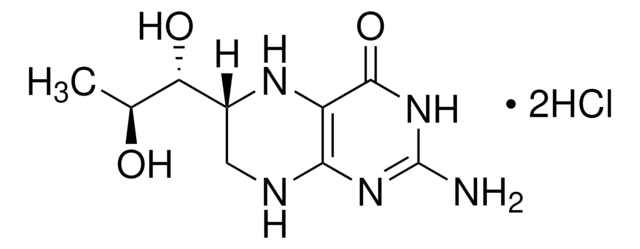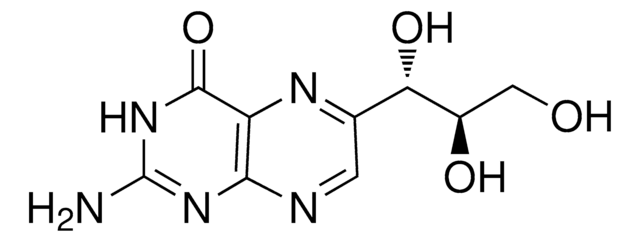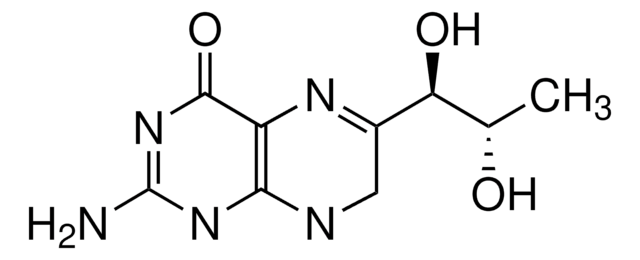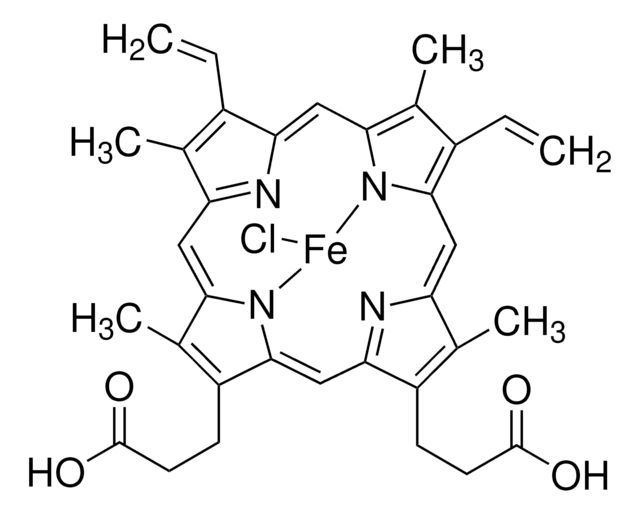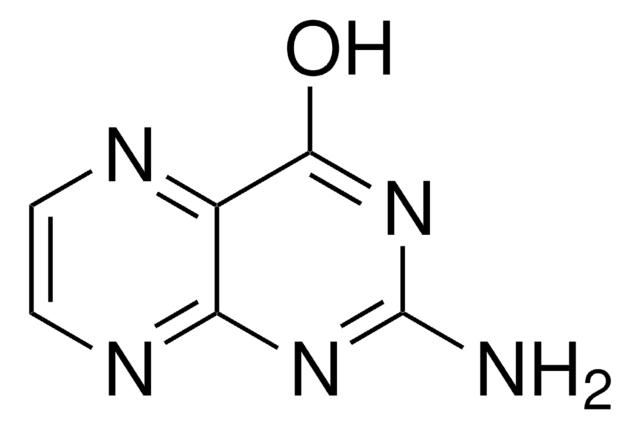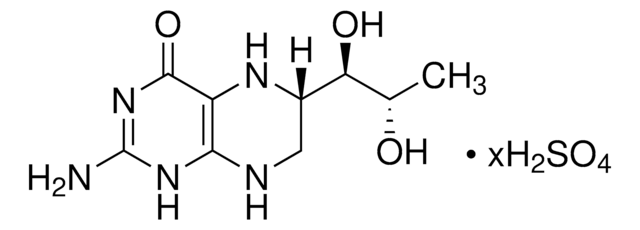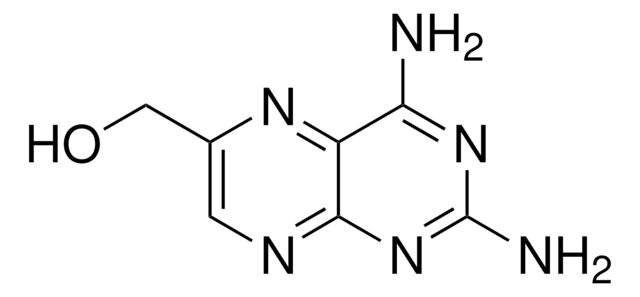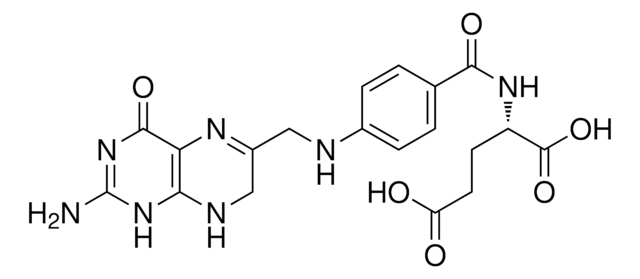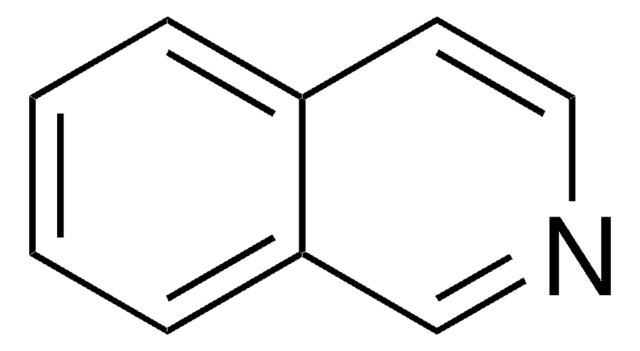B2517
6-Biopterin
≥97%
Synonym(s):
(1’R,2’S)-Biopterin, 2-Amino-4-hydroxy-6-(1,2-dihydroxypropyl)pteridine, L-erythro-6-(1,2-Dihydroxypropyl)pterin
About This Item
Recommended Products
biological source
synthetic
Assay
≥97%
form
powder
solubility
1 M NaOH: soluble-10 mg/mL, clear, colorless to light greenish-yellow
storage temp.
2-8°C
SMILES string
C[C@H](O)[C@H](O)c1cnc2NC(N)=NC(=O)c2n1
InChI
1S/C9H11N5O3/c1-3(15)6(16)4-2-11-7-5(12-4)8(17)14-9(10)13-7/h2-3,6,15-16H,1H3,(H3,10,11,13,14,17)/t3-,6-/m0/s1
InChI key
LHQIJBMDNUYRAM-DZSWIPIPSA-N
Looking for similar products? Visit Product Comparison Guide
Application
Storage Class Code
11 - Combustible Solids
WGK
WGK 3
Flash Point(F)
Not applicable
Flash Point(C)
Not applicable
Personal Protective Equipment
Choose from one of the most recent versions:
Already Own This Product?
Find documentation for the products that you have recently purchased in the Document Library.
Customers Also Viewed
Our team of scientists has experience in all areas of research including Life Science, Material Science, Chemical Synthesis, Chromatography, Analytical and many others.
Contact Technical Service